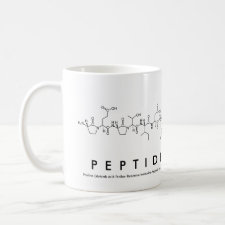
Authors: Yin JF, Wang ZX, Song MY, Zhao C, Wang HL
Article Title: Plastic antibody for DNA damage: fluorescent imaging of BPDE-dG adducts in genomic DNA.
Publication date: 2013
Journal: Analyst
Volume: 138
Issue: (17)
Page numbers: 4958-4966.
DOI: 10.1039/C3AN00467H
Abstract: Exogenous and endogenous genotoxic carcinogens and their in vivo metabolites may result in DNA damage and cause adverse health effects. It is very difficult to specifically detect trace DNA damage in the presence of a large excess of unmodified nucleosides. Here we report a molecularly imprinted polymer (MIP) nanocomposite, namely nanoMIP, which can be used as a "plastic antibody" for specific recognition of benzo[a]pyrene diol epoxide (BPDE)-DNA adduct. Enhanced binding affinity (880 nM) of nanoMIPs was achieved by using two tailor-made functional monomers. The property of binding kinetics was greatly improved in virtue of the well-defined nanostructure, which was fabricated by initiators for continuous activator regeneration-atom transfer radical polymerization (ICAR-ATRP). The BPDE-adducted DNA can be specifically captured by synthetic nanoMIP. By taking advantage of this antibody-mimicking behavior, we further developed a fluorescently imaged particle counting immunoassay (FIPCIA) method for ultrasensitive detection of BPDE-ssDNA adducts using a laser scanning confocal microscope (LSCM). The number of countable fluorescent dots is proportional to the content of BPDE-ssDNA adducts in the DNA sample. The proposed plastic antibody-based FIPCIA method can detect traces of BPDE-DNA adducts as low as 18 pM in human lung carcinoma A549 cells. This highly-sensitive detection of DNA lesions offers a promising alternative to immunogenic antibody-based immunoassays for genomics and DNA modification analysis
Template and target information: benzo[a]pyrene diol epoxide (BPDE)-DNA adduct



Join the Society for Molecular Imprinting

New items RSS feed
Sign-up for e-mail updates:
Choose between receiving an occasional newsletter or more frequent e-mail alerts.
Click here to go to the sign-up page.
Is your name elemental or peptidic? Enter your name and find out by clicking either of the buttons below!
Other products you may like:
 MIPdatabase
MIPdatabase









